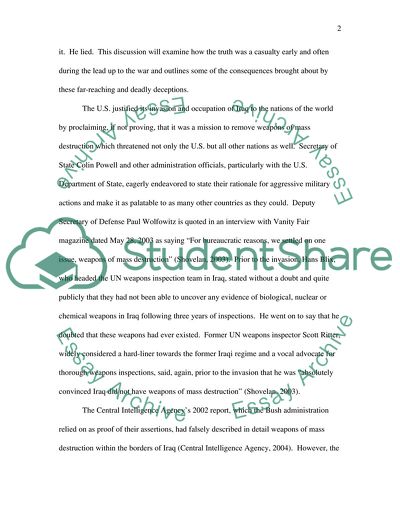Cite this document
(“Oil, Iraq and U.S. Foreign Policy Term Paper Example | Topics and Well Written Essays - 1250 words”, n.d.)
Oil, Iraq and U.S. Foreign Policy Term Paper Example | Topics and Well Written Essays - 1250 words. Retrieved from https://studentshare.org/politics/1718697-oil-iraq-and-us-foreign-policy
Oil, Iraq and U.S. Foreign Policy Term Paper Example | Topics and Well Written Essays - 1250 words. Retrieved from https://studentshare.org/politics/1718697-oil-iraq-and-us-foreign-policy
(Oil, Iraq and U.S. Foreign Policy Term Paper Example | Topics and Well Written Essays - 1250 Words)
Oil, Iraq and U.S. Foreign Policy Term Paper Example | Topics and Well Written Essays - 1250 Words. https://studentshare.org/politics/1718697-oil-iraq-and-us-foreign-policy.
Oil, Iraq and U.S. Foreign Policy Term Paper Example | Topics and Well Written Essays - 1250 Words. https://studentshare.org/politics/1718697-oil-iraq-and-us-foreign-policy.
“Oil, Iraq and U.S. Foreign Policy Term Paper Example | Topics and Well Written Essays - 1250 Words”, n.d. https://studentshare.org/politics/1718697-oil-iraq-and-us-foreign-policy.


